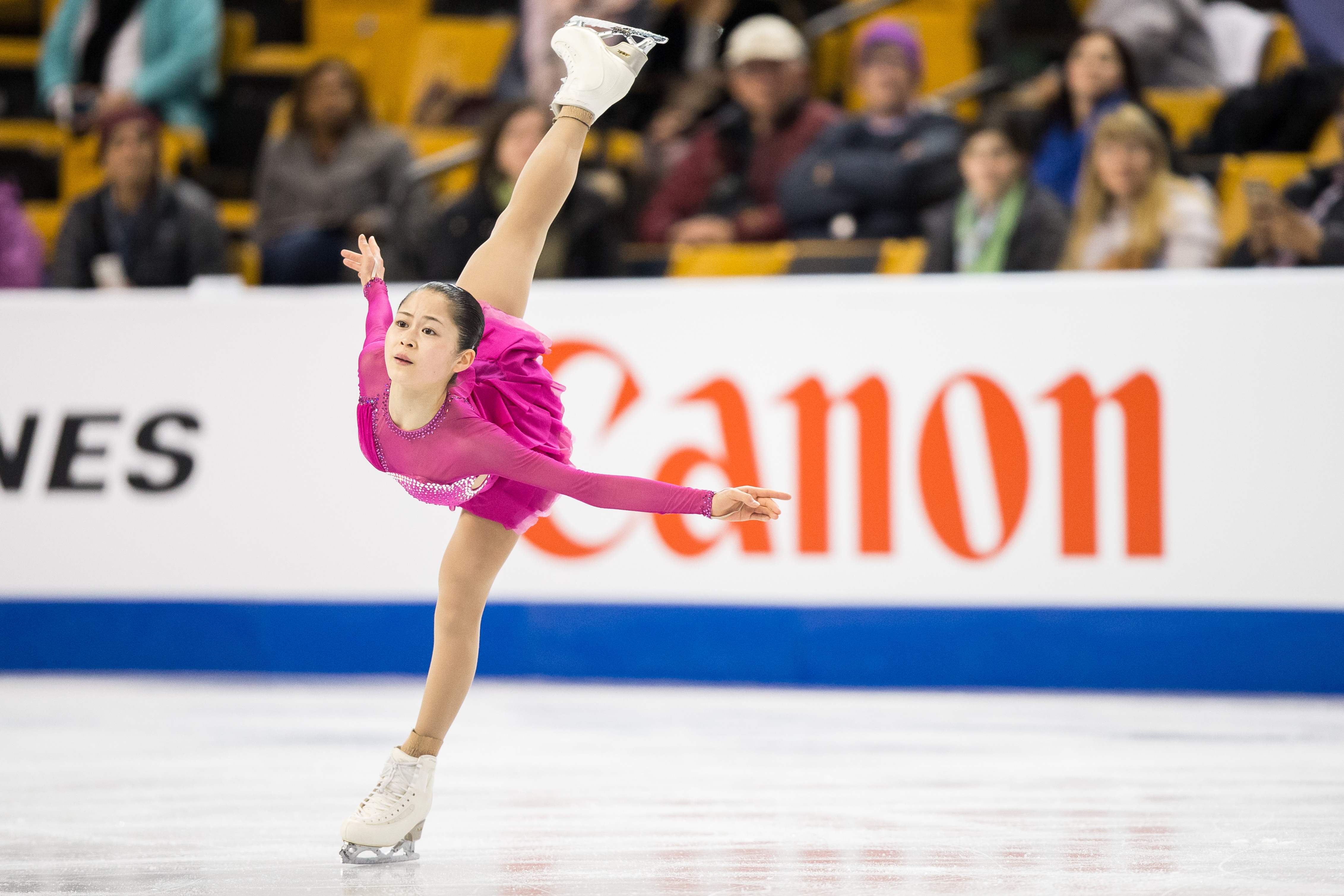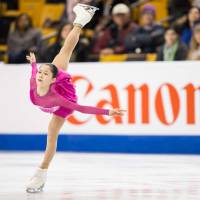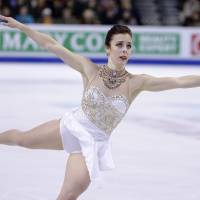The more things change, the more they stay the same.
That was the feeling Ice Time had after watching the world championships in Boston unfold last week. Every time figure skating tries to take a step forward, it inevitably moves backward.
Just over two years removed from the "Sham in Sochi," where defending Olympic champion Yuna Kim was robbed of a second gold medal, we were treated to "Bogus in Boston." This time the victim was Satoko Miyahara.
Miyahara, the silver medalist at last year's worlds in Shanghai, skated two nearly flawless programs and ended up fifth for her efforts. It was a joke.
Ice Time was not the only one who felt something was amiss, as social media lit up with comments on Saturday night after the women's competition had ended about the injustice done to Miyahara. I'm not talking about comments from Japanese fans, I'm talking about those of non-Japanese who were upset by the result.
Russia's Evgenia Medvedeva was certainly a deserving world champion. Impressive from start to finish, she was a real show-stopper. But after that, it is hard to see how three other skaters could be placed ahead of Miyahara in the final standings.
Miyahara should have been on the podium in either second or third place. She exuded all of the elegance and grace that we have come to know from her over the years with a lovely free skate to "Un Sospiro" and was not marked down for any elements in her program.
Then the scores come out, and she ends up not one place down from last season but three. It was a complete disgrace.
Ice Time had a feeling ahead of time that the fix may be in and Miyahara might be the fall girl in the end. The American media started building the narrative weeks ahead of the worlds by writing how "the U.S. has a chance to end a 10-year drought if Gracie Gold or Ashley Wagner can win a medal."
And sure enough, look at what happened.
You knew something was up when Gold ended up with a 2.45-point lead after the short program.
Gold was solid, but did she deserve that big of an advantage heading into the free skate?
I think not.
At this point, it was smelling like Sochi all over again. There the skids were greased for Russia's Julia Lipnitskaia to beat Kim on home ice after her performance in the team event, but when she struggled in the short program, miraculously Adelina Sotnikova surpassed her own previous best score in the free skate by 16 points to get the gold.
You could see the same thing unfolding on Saturday night at the TD Center. Once Gold stumbled, Wagner was magically elevated into second place despite under-rotating two of her jumps and not landing a clean edge on another in her free skate.
Meanwhile, Miyahara skated cleanly and by many accounts had the most impressively interpretative program of the night, but somehow ended up with a program component score (which focuses on skating skills, transitions and artistry) that was more than seven points lower (73.78 to 66.35) than Wagner.
If those scores had been flipped, Miyahara would have ended up with her second straight silver medal and Wagner would have been sixth.
You think Ice Time is the only one who thought Miyahara's free skate was sublime?
Think again.
Here is a sample of what a couple of the experts had to say in the wake of Miyahara's performance in the free skate.
Former U.S. champion Ryan Bradley, who was the color analyst on the NBC Sports Network's telecast of the worlds:
"Wow, Satoko! That was one of the most effortless performances I've ever seen."
Legendary skating writer Phil Hersh:
"Wondrous free skate for Satoko Miyahara."
Olympic and world champion ice dancer Charlie White worked at the worlds for icenetwork.com and made it clear in his analysis that he also thought Miyahara's PCS scores were too low.
Perhaps the strangest comment of all came from Tara Lipinski, the Nagano Olympic gold medalist, who worked as an analyst for NBC. During Miyahara's free skate she said, ". . . She's a dark horse for the podium."
What?
The world silver medalist is a "dark horse?"
Comments like these just added to the feeling that results were predetermined — that there was going to be an American woman on the podium one way or the other.
The outcome in Boston also meant that it was the first time a Japanese woman had not been on the medal stand at the worlds since 2005.
Miyahara handled the predictable letdown with her usual class.
"I'm very happy to do all the jumps great," Miyahara commented in English to Sweden's TV4 Sport after the free skate. "It was a very fun and exciting competition. I was a little bit nervous, but I think the audience's cheering became my power."
Only after being prodded by the interviewer did the always-gracious Miyahara reveal her true feelings.
"I'm a little bit disappointed," she said of her fifth-place finish. "I did a good program. I think I have to practice more. I found many things to practice. I want to do my best next year, too."
The kind of nonsense that we saw in Boston is exactly what is wrong with skating and why many people refuse to take it seriously.
The host country gets a medalist in the women's event because they haven't had one in 10 years or because they are the host country?
Neither of those reasons are legitimate ones for underscoring one skater and overscoring another. Behavior like this makes skating look so parochial — just like it did in Sochi.
I can remember a writer once complaining to me about the refereeing always favoring the home teams back during my days working in the NBA.
"They want it to be like a play," he said.
"What do you mean?" I replied.
"They want the audience to go home happy," the writer commented.
This was the same vibe I had watching the women's free skate at the worlds.
Three slots regained: Hats off to Javier Fernandez of Spain who defended his world title with a fantastic free skate to overtake Yuzuru Hanyu and win the gold medal for the second time. Fernandez's performance was truly inspiring.
Hanyu's poor free skate undid the 12-point lead he held after his strong short program and he settled for the silver for the second straight year. It was the largest lead a skater had taken into the free skate at a worlds or Olympics in the 11 years of the current scoring system.
It was a sad ending to a dominant season for Hanyu, who set six world records, and nearly a seventh with his short program at the worlds. One has to wonder if Hanyu doesn't feel a bit like the New England Patriots did after they took an 18-0 record into the Super Bowl in 2008, only to lose to the New York Giants.
People only remember that the Patriots lost the last game. It may well be the same for Hanyu this season.
The news wasn't all bad on the men's side, however. The combination of Hanyu's second-place finish and Shoma Uno's seventh-place showing means that Japan will have three spots at next year's worlds in Helsinki after only having two this year.
Hanyu and Uno needed to have a combined result of 13th or better to secure the three slots for Japan, and did so with room to spare.




















With your current subscription plan you can comment on stories. However, before writing your first comment, please create a display name in the Profile section of your subscriber account page.